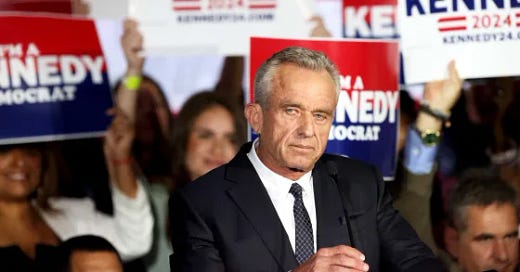On April 19, 2023, Robert F. Kennedy, Jr., announced his candidacy for the nomination of the Democratic Party for the office of President of the United States. The announcement speech at the Park Plaza Hotel in Boston lasted nearly two hours.
He is the son of Robert F. Kennedy and the nephew of President John F. Kennedy. He symbolizes an era in which we were more innocent, when the differences between good and evil seemed clearer, and when the differences among us were debated in the context of a common commitment to acceptance of truth. A time in which our nation was morally and economically strong, recognized as the leader of the democratic world by the peoples of the world, or at least so it seemed to us. A time in which we believed that the leaders in our various institutions should be respected and trusted.
He declares himself to be a Kennedy liberal, seeing this categorization as the simplest way to clarify his position in the context of the current ideological…



